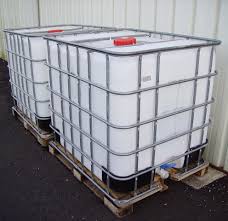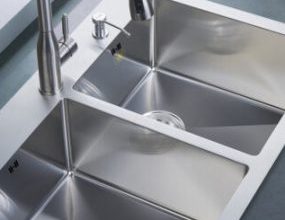Introduction
Intermediate Bulk Containers (IBCs) have gained significant popularity in various industries as versatile, eco-friendly, and cost-effective solutions for handling and storing liquids and bulk materials. In this article, we will explore the world of IBC containers, their diverse applications, and the numerous advantages they offer for businesses and environmental sustainability.
What are IBC Containers?
Intermediate Bulk Containers (IBCs) are large, reusable containers used for the storage, transportation, and handling of liquids, powders, and granulated materials. They are typically constructed from high-density polyethylene (HDPE), stainless steel, or a combination of both. IBCs come in various shapes and sizes, but they are generally standardized for ease of handling and transport.
Versatility in Applications
One of the standout features of IBC containers is their versatility in applications. These containers are used across a wide range of industries, including:
a. Chemical Industry: IBCs are commonly used for storing and transporting chemicals, such as solvents, acids, and bases.
b. Food and Beverage Industry: They are employed for handling bulk quantities of liquids, including juices, syrups, oils, and more.
c. Pharmaceutical Industry: IBC containers provide a secure and sanitary solution for the storage and transport of pharmaceutical ingredients.
d. Agriculture: IBCs can store fertilizers, pesticides, and other agricultural products.
e. Construction: They are used to transport and store construction materials like cement, mortar, and adhesives.
f. Waste Management: IBCs are essential for hazardous waste storage and disposal.
Eco-Friendly Solutions
IBCs are considered environmentally friendly for several reasons:
a. Reusability: IBC containers are designed for multiple uses, reducing the need for single-use packaging and minimizing waste.
b. Recyclability: IBCs, especially those made of HDPE, are highly recyclable, contributing to the reduction of plastic waste.
c. Sustainable Materials: Many IBCs are made from recyclable materials, and they can be easily incorporated into sustainable supply chain practices.
Cost-Effective Storage and Transport
IBC containers are not only environmentally responsible but also cost-effective solutions. They offer several financial benefits:
a. Reduced Packaging Costs: By eliminating the need for single-use containers, IBCs reduce overall packaging costs.
b. Efficient Handling: IBCs are designed for easy handling, reducing labor costs associated with loading and unloading.
c. Space Optimization: IBCs are stackable and can be stored efficiently, saving warehouse space.
d. Reduced Transportation Costs: Due to their standardized sizes, IBCs can maximize transport efficiency by reducing empty space in trucks and containers.
Enhanced Safety and Durability
Safety is a top priority when handling and storing chemicals and other hazardous materials. IBC containers are built with safety features like secure closures and spill containment options. Additionally, they are durable, protecting their contents from environmental factors and ensuring a longer lifespan compared to other forms of storage.
Compliance and Regulations
IBC containers are designed to meet stringent regulations and standards, ensuring the safe handling of various substances. This is especially important in industries where compliance with regulatory agencies is mandatory. Using IBCs simplifies the process of adhering to these regulations.
Conclusion
IBC containers are versatile, eco-friendly, and cost-effective solutions for businesses across multiple industries. Their applications range from the chemical and pharmaceutical sectors to agriculture, construction, and waste management. These containers are also celebrated for their eco-friendly design, cost-efficiency, enhanced safety features, and compliance with industry regulations. When your business chooses IBC containers, you are not only opting for a practical and economical solution but also taking a step towards sustainable practices that benefit both your bottom line and the environment.
For more information visit ITP Packaging




